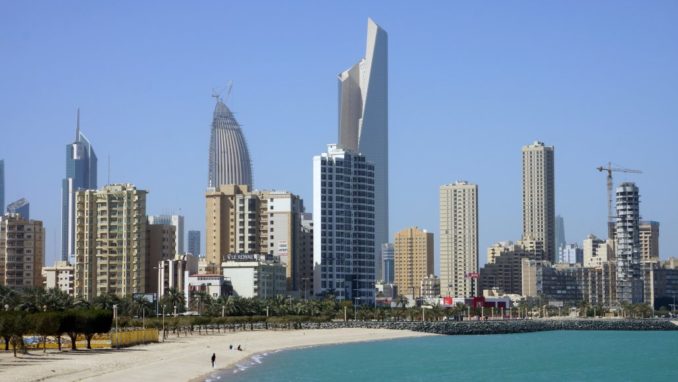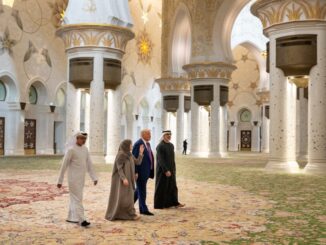
During my year and a half stay in Kuwait in the late 1970s the country had two big objectives.
- Increase the number of Kuwaiti citizens
- Reduce dependence on oil
The population was about 1.5 million then, it is 4.6 million now of whom about 30% are Kuwaiti. In my day the percentage of Kuwaitis was below 50%, the rest being made up of other Arabs, Indians, Pakistanis, Philipinos and Europeans. Even then there were hundreds of thousands of Palestinians, many of whom worked for the Kuwait Oil Company. These Palestinians welcomed Saddam’s invasion with open arms and I have been told they pranced around as if they owned the place. They thought they would be replacing the Kuwaitis and thereby taking over the country.
The oil industry accounted for well over 90% of the economy back in the day and like other Gulf states the Kuwaitis wanted to expand their economy in other directions. Forty years later, oil is probably around 85% of their economy. There is movement but they will never be free of their dependency on oil. Tourism was never encouraged, they had too many foreigners to start with and aside from oil there is little in the way of natural resources.
How did they go about increasing the number of Kuwaiti citizens. Well, aside from the obvious form of procreation, they decided they could get loads of Bedouin to settle in the country. These people were essentially nomads, wandering around the desert between Kuwait, Saudi Arabia and Iraq. We may look down on them but these guys survive in extremes of heat that would kill us off.
The big plan was to provide them with housing in the hope they would settle down. This resulted in large numbers of houses being built out in the desert in what looked like estates. This accommodation was provided free to the Bedouin. There was some success with this plan, families moved in though I think they still went off on walkabouts now and then.
Where it all went a bit pear shaped was what could be termed as the living arrangements. Most Bedouin had multiple wives and there was a steady stream of men visiting the Housing Agency complaining that wife number 3 could not live alongside wife number 2. This was quickly solved by giving them another house, in fact many possibly ended up with a house for each wife.
A man raised living in the desert doesn’t really understand living inside 4 walls. They used to make open fires inside the house so they could cook and beds were unknown to them. They ended up putting concrete slabs in the garden area for them to sleep on while the curtains were ripped down and used as bedclothes.
In a personal effort to encourage families to stay in Kuwait the Emir (Prince as we know them) used to marry a different Bedouin girl each week and divorce her after 5 or 6 days. The family was then assured of a reasonable income for life and maybe a higher social status. In this way the Emir probably increased the population by 50 or so a year.
The nationality laws in Kuwait were not exactly woke. There were 3 classes of citizen, the Bedouin fitted into the third class. The Labour laws were also racist in the extreme. Any available job had to go to a Kuwaiti if one applied. There was then a list of Arab countries in a pecking order, Iraq and Saudi being at the top of the list and places like Yemen and Morocco at the bottom. Jobs were allocated on the basis of these lists. Europeans and Americans figured somewhere on the list but Indians and Phillipinos were down near the bottom. Obviously muslims were preferred to Christians and Hindus. The Iraqis have most likely been removed from the list since the Gulf Wars. The Israeli Ambassador to the United Nations once cited Kuwait’s Labour Laws after he had been accused of representing a racist country.
There was also a law that after living in Kuwait for 25 years you could apply for citizenship. By 1980 there were quite a few Indians taking advantage of this so they extended the period to 30 years. By now they have probably abolished this route to Nirvana.
One of the examples of how the economy works was provided by one of the Ministers. He had a company and it imported thousands and thousands of fire extinguishers for cars. This company then tried to sell them to the public. Said public was distinctly unimpressed and didn’t buy any. How did he solve this, firstly a law requiring fire extinguishers in vehicles followed by the traffic police (mainly Iraqis on Laverda 750s) had a massive purge and started doing spot checks and fining people. Once all the extinguishers had been sold, the law was quietly forgotten. The reason why the police were often Iraqi is that Kuwaitis were not the most energetic and wanted to be managers not workers so the average cop was Iraqi. At the time Iraqis were seen as brothers, this may no longer be true.
Like I may have mentioned before, Kuwait is not only another country, it is like another planet as are all of the Gulf countries.
© well_chuffed 2022



